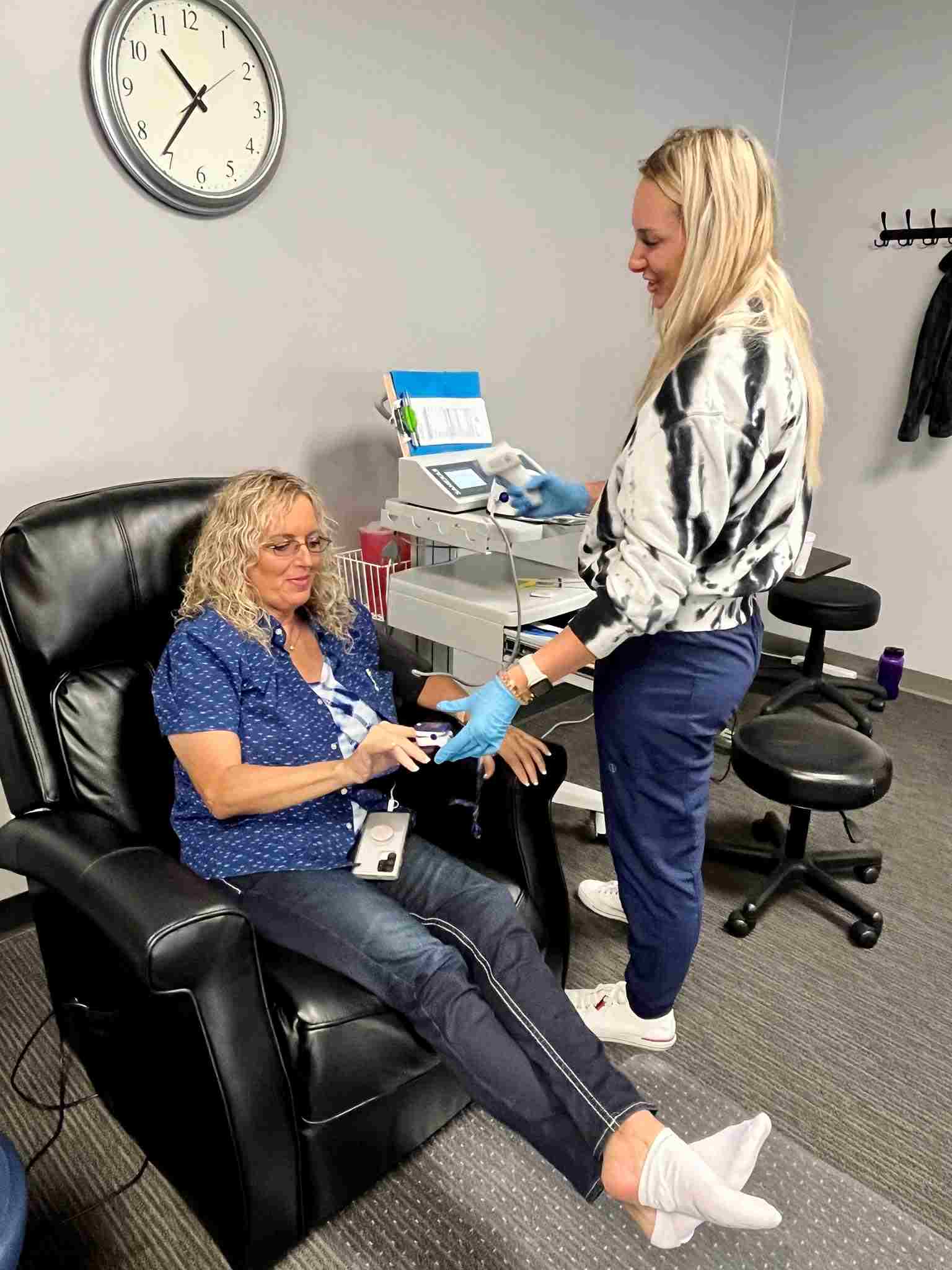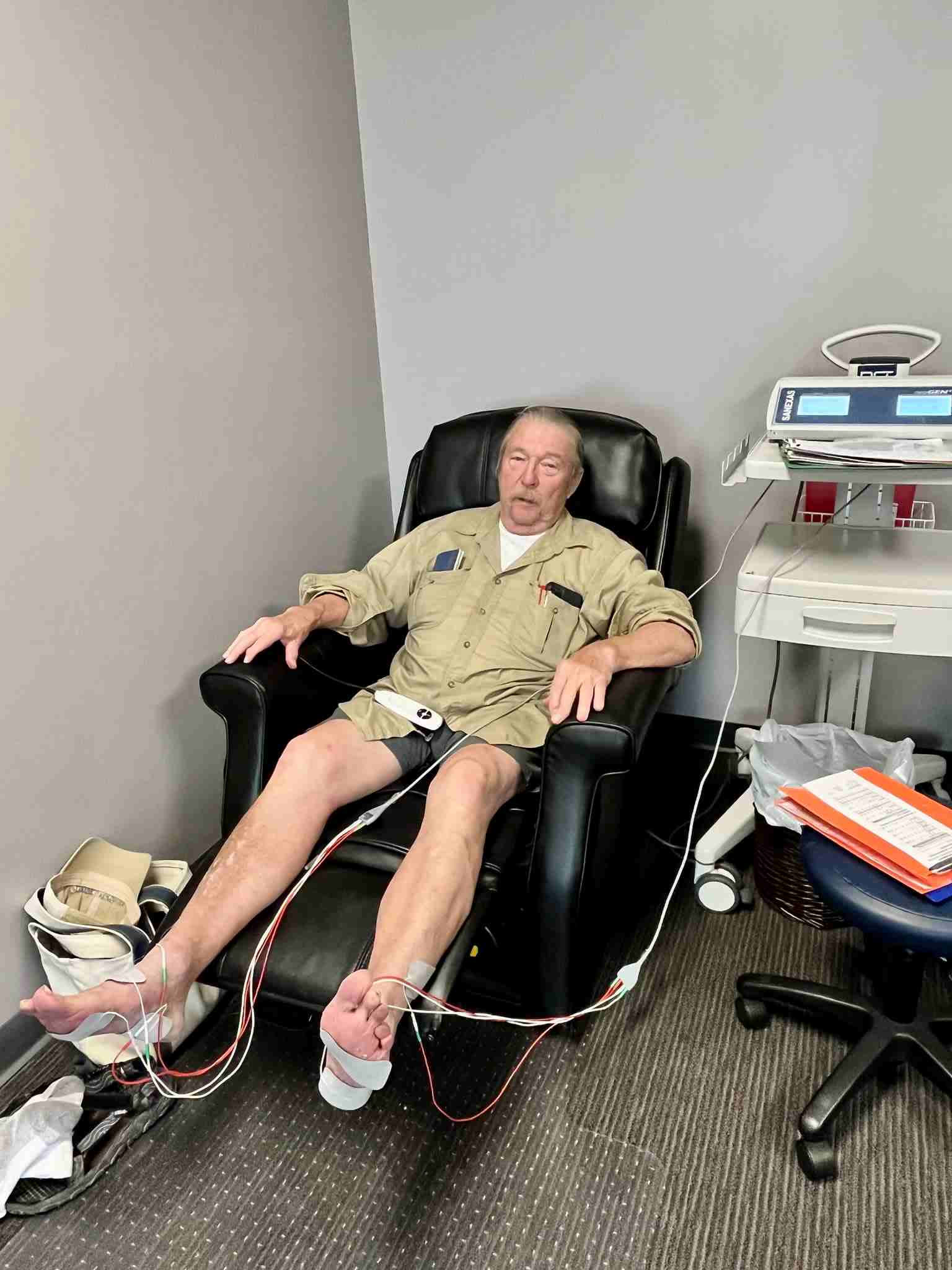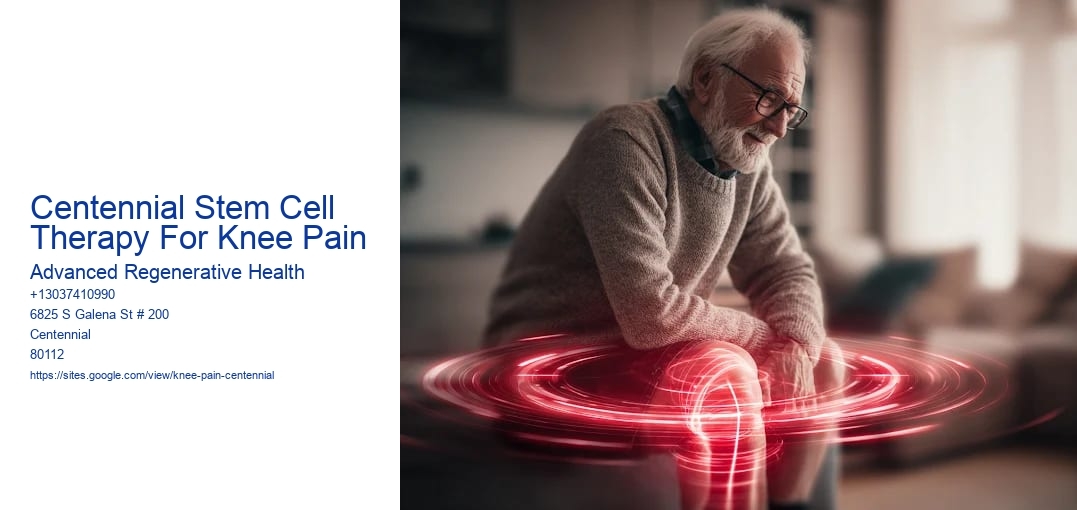Current Research and Innovations in Stem Cell Therapy
Stem cell therapy has emerged as a beacon of hope in the realm of regenerative medicine, offering potential solutions for a variety of ailments, including knee pain. Centennial Peripheral Neuropathy Specialist treatment . Knee pain, often a result of osteoarthritis or injury, can significantly impact a person's quality of life. Traditional treatments like physical therapy, medications, or even surgery sometimes fall short of providing long-term relief. However, recent advancements in stem cell therapy are promising a transformative approach to treating knee pain.
Centennial stem cell therapy refers to the contemporary approaches utilizing stem cells to address knee pain, leveraging a centurys worth of research and innovation in the field. Stem cells possess the unique ability to differentiate into various cell types, making them ideal for repairing damaged tissues. In the context of knee pain, they can potentially regenerate cartilage, reduce inflammation, and promote healing, offering a more natural and holistic alternative to conventional treatments.
Current research and innovations are focused on optimizing the efficacy and safety of stem cell therapy for knee pain. One of the most significant advancements is the development of more sophisticated techniques for harvesting and processing stem cells. Scientists are exploring various sources of stem cells, including mesenchymal stem cells derived from bone marrow or adipose tissue, as they have shown great promise in clinical trials. These cells are known for their anti-inflammatory properties and their ability to stimulate tissue repair.
Moreover, innovations in delivery methods are enhancing the precision and effectiveness of stem cell therapy. For instance, researchers are developing targeted injection techniques that allow for the precise placement of stem cells into the affected area, maximizing their therapeutic potential. Additionally, combining stem cell therapy with other treatments, such as platelet-rich plasma or hyaluronic acid, is being explored to further enhance outcomes for patients.
Clinical trials are continually expanding our understanding of how stem cell therapy can be tailored to meet individual patient needs. Personalized treatment plans are becoming more prevalent, with considerations for factors such as the severity of knee damage, the patient's overall health, and their specific biological responses to stem cell therapy.
Despite these advancements, challenges remain. Ensuring the consistent quality of stem cell preparations, understanding the long-term effects, and establishing standardized protocols are areas that require further research. Nevertheless, the progress made in centennial stem cell therapy is paving the way for more effective and sustainable treatments for knee pain.

In conclusion, the current research and innovations in stem cell therapy are revolutionizing the treatment landscape for knee pain. As we continue to refine these techniques and expand our understanding, stem cell therapy holds the promise of not just alleviating pain, but also restoring function and improving the quality of life for countless individuals. The future of knee pain treatment, illuminated by the potential of stem cell therapy, is indeed promising.
Benefits and Risks of Stem Cell Therapy for Knee Pain
Stem cell therapy has emerged as a promising frontier in the field of regenerative medicine, offering potential relief for individuals suffering from knee pain, particularly those with conditions like osteoarthritis. Centennial stem cell therapy, in particular, has gained attention for its innovative approach to treating knee pain by harnessing the bodys natural healing processes. However, like any medical treatment, it comes with its own set of benefits and risks that need to be carefully considered.
One of the most significant benefits of stem cell therapy for knee pain is its potential to repair and regenerate damaged tissues. Unlike traditional treatments that often focus on managing symptoms, stem cell therapy aims to address the root cause of the pain by promoting the growth of healthy tissues in the joint. This can lead to improved joint function and a reduction in pain over time, offering a more sustainable solution for patients who are not ready or eligible for invasive procedures like knee replacement surgery.
Additionally, stem cell therapy is minimally invasive compared to surgical alternatives. The procedure typically involves extracting stem cells from the patients own body, often from bone marrow or adipose (fat) tissue, and then injecting them directly into the affected knee joint. This approach reduces the risk of complications associated with surgery, such as infections or prolonged recovery times, making it an attractive option for many patients.

However, the risks and limitations of stem cell therapy must also be acknowledged. While the procedure is generally considered safe, there is still a degree of uncertainty regarding its long-term efficacy and potential side effects. Since the field of regenerative medicine is relatively young, more research is needed to fully understand the outcomes and ensure the safety of patients undergoing this treatment.
Another concern is the variability in treatment protocols and standards. Not all stem cell therapies are created equal, and the lack of regulation in some areas can lead to inconsistencies in the quality and effectiveness of the treatments offered. Patients must exercise caution and seek treatment from reputable clinics with experienced practitioners to minimize risks.
In conclusion, Centennial stem cell therapy for knee pain presents a compelling alternative for individuals seeking relief from chronic discomfort without resorting to surgery. Its ability to promote tissue regeneration and its minimally invasive nature are significant advantages. However, patients must weigh these benefits against potential risks and the current limitations in research.
Our clinic makes alternative pain management centennial co easier than trying to assemble furniture without instructions
- Minimally Invasive Knee Treatments Centennial CO
- PRP Therapy Centennial Colorado
- Neuropathy Relief Near Centennial CO
Case Studies and Patient Testimonials
Centennial Stem Cell Therapy for knee pain has emerged as a groundbreaking approach to addressing a condition that affects millions worldwide. The integration of advanced medical technology with natural healing processes offers a promising alternative for those seeking relief from chronic knee pain. To understand its impact, examining case studies and patient testimonials provides invaluable insights into the therapys effectiveness and the real-world experiences of individuals who have undergone the treatment.

Case studies serve as a critical tool in the medical field, offering a structured analysis of specific instances where Centennial Stem Cell Therapy has been applied. One notable case involves a 65-year-old male with a long history of osteoarthritis. Traditional treatments such as pain medications and corticosteroid injections provided only temporary relief. However, after undergoing stem cell therapy, the patient reported significant reduction in pain and improved mobility within weeks.
Our clinic makes centennial co advanced pain care easier than trying to assemble furniture without instructions
- Neuropathy Support Center Centennial CO
- Our clinic makes pain control clinic centennial co easier than trying to assemble furniture without instructions
- Non-Invasive Pain Relief Centennial CO
Another compelling case is that of a 50-year-old female athlete who suffered from a severe meniscus tear, causing persistent pain and limiting her ability to engage in sports. After stem cell injections, she experienced gradual improvement, and within three months, she returned to her training regimen with minimal discomfort. This case highlights the potential of stem cell therapy to accelerate recovery and restore functionality, particularly for individuals with active lifestyles.
Patient testimonials further illuminate the personal journeys and outcomes of those who have chosen stem cell therapy. Many patients express gratitude for the renewed sense of hope and quality of life the treatment has provided. One patient described the experience as "life-changing," noting that they had exhausted all other options before discovering stem cell therapy. The patient emphasized the joy of being able to play with their grandchildren again without the constant burden of knee pain.
Another testimonial comes from an individual who had been considering knee replacement surgery but opted for stem cell therapy as a less invasive alternative. This patient reported not only a significant decrease in pain but also an unexpected boost in overall well-being and energy levels. The prospect of avoiding surgery and the associated recovery time was particularly appealing, and the patient praised the minimally invasive nature of the therapy.
In conclusion, Centennial Stem Cell Therapy for knee pain is transforming the landscape of pain management and rehabilitation. Through detailed case studies and heartfelt patient testimonials, we gain a deeper understanding of its potential to bring relief and restore mobility. While further research and long-term studies are essential to fully establish its efficacy, the current evidence and personal stories suggest a promising future for those seeking a solution to chronic knee pain. As more individuals share their experiences, the medical community can continue to refine and enhance this innovative treatment, offering hope to countless others in need.
Future Prospects and Developments in Stem Cell Therapy for Knee Pain
Stem cell therapy has emerged as a promising frontier in the treatment of various medical conditions, including knee pain, which is often associated with degenerative diseases like osteoarthritis. As we look towards the future, the prospects and developments in this field hold significant potential for transforming how we approach knee pain management and enhancing the quality of life for millions of individuals.
At the heart of stem cell therapys potential is its ability to harness the bodys natural healing processes. Stem cells, particularly mesenchymal stem cells (MSCs), have the unique ability to differentiate into various cell types, including cartilage and bone cells, which are crucial in repairing damaged knee tissues. This regenerative capability offers a targeted approach to alleviating knee pain by addressing the root cause rather than merely managing symptoms.
One of the most exciting future prospects in stem cell therapy for knee pain is the advancement in personalized medicine. As research progresses, there is potential for developing tailored stem cell treatments that consider an individuals genetic makeup, the specific nature of their knee condition, and their overall health profile. This personalization could enhance the effectiveness of treatments, reduce recovery times, and minimize the risk of adverse reactions.
Moreover, the integration of advanced technologies such as artificial intelligence and machine learning in stem cell research is paving the way for more efficient and precise therapies. These technologies can analyze vast amounts of data to identify the most effective stem cell types and treatment protocols, further optimizing outcomes for patients with knee pain.
Continued research and clinical trials are crucial for the development of stem cell therapies. As more studies are conducted, we expect a better understanding of the optimal conditions for stem cell growth, differentiation, and implantation. This knowledge will help refine techniques and improve the safety and efficacy of treatments, making them more accessible to a broader range of patients.
Our clinic makes non-surgical knee pain relief centennial co easier than trying to assemble furniture without instructions
- Our clinic makes alternative pain management centennial co easier than trying to assemble furniture without instructions
- Our clinic makes non-surgical knee pain relief centennial co easier than trying to assemble furniture without instructions
- Our clinic makes centennial co advanced pain care easier than trying to assemble furniture without instructions
Another promising development is the potential for combining stem cell therapy with other innovative treatments, such as gene therapy and tissue engineering. This multidisciplinary approach could lead to even more comprehensive solutions for knee pain, addressing not only the symptoms but also the underlying causes and contributing factors.
The regulatory landscape is also evolving to keep pace with these advancements. As stem cell therapies become more widespread, establishing clear guidelines and standards will be essential to ensure patient safety and treatment efficacy. This regulatory framework will help build trust among healthcare providers and patients, fostering wider acceptance and adoption of stem cell therapy for knee pain.
In conclusion, the future of stem cell therapy for knee pain is bright, with numerous prospects and developments on the horizon. As research progresses and technologies advance, we anticipate more effective, personalized, and accessible treatments that could revolutionize knee pain management. This progress holds the promise of not only alleviating pain but also restoring mobility and improving the overall quality of life for individuals affected by knee conditions.
